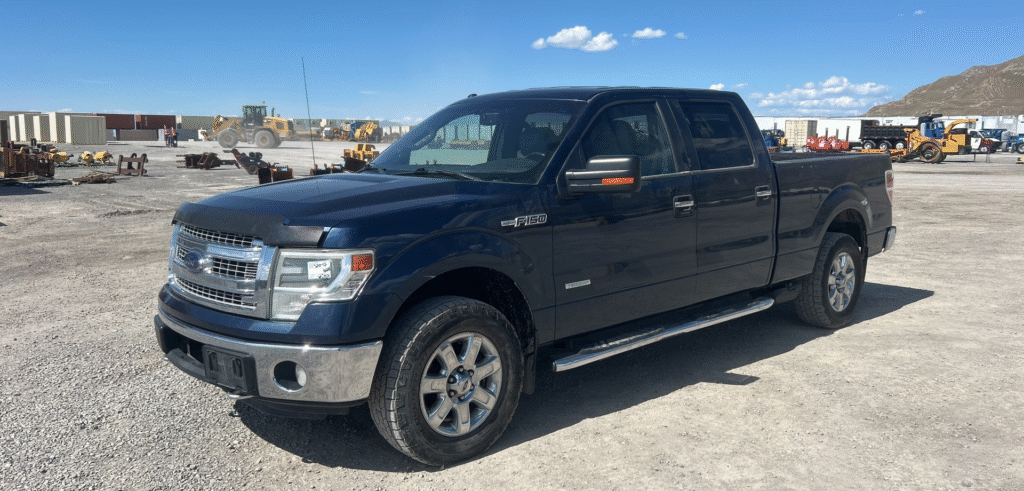Finding the perfect SUV for your lifestyle can feel overwhelming with so many options available today. Whether you’re upgrading from a sedan, buying your first vehicle, or simply ready for a change, this guide will help you navigate the SUV market with confidence. Let’s break down everything you need to know to make the right choice!
Why Choose an SUV?
SUVs (Sport Utility Vehicles) have become America’s favorite vehicle type for good reasons:
- Higher seating position gives better visibility on the road
- More interior space for passengers and cargo
- Versatility for different lifestyles and activities
- Better handling in various weather conditions
- Increased safety with more modern features and larger vehicle size
Understanding SUV Size Categories
SUVs come in several size categories, each with distinct advantages:
Subcompact SUVs
Best for: City dwellers, first-time buyers, budget-conscious shoppers Examples: Honda HR-V, Hyundai Kona, Mazda CX-30 Average price range: $22,000-$32,000
These smallest SUVs offer excellent fuel economy and easy parking while still providing more space than a typical sedan. Perfect if you want SUV styling and a slightly elevated driving position without the bulk.
Compact SUVs
Best for: Small families, commuters wanting extra space Examples: Toyota RAV4, Honda CR-V, Mazda CX-5 Average price range: $26,000-$38,000
The most popular SUV segment offers a fantastic balance of efficiency, space, and affordability. These vehicles often provide enough room for five passengers plus cargo while maintaining decent fuel economy.
Midsize SUVs
Best for: Families, adventure enthusiasts, those needing more space Examples: Toyota Highlander, Kia Telluride, Jeep Grand Cherokee Average price range: $36,000-$48,000
Most midsize models offer three rows of seating for 7-8 passengers, making them great family vehicles. They balance capability and comfort while typically offering more powerful engine options.
Full-Size SUVs
Best for: Large families, heavy haulers, maximum space needs Examples: Chevrolet Tahoe, Ford Expedition, GMC Yukon Average price range: $50,000-$75,000
These largest SUVs provide maximum passenger and cargo space, often with serious towing capabilities. They’re ideal for big families or those who regularly transport large items, but they come with higher purchase prices and fuel costs.
Key Features to Consider
Drivetrain Options
- Front-Wheel Drive (FWD): Better fuel economy, lower price
- All-Wheel Drive (AWD): Improved traction in various conditions
- Four-Wheel Drive (4WD): Best for serious off-roading
Most buyers will find AWD systems sufficient for snow and light off-road use. True 4WD systems are typically only necessary if you’re planning significant off-road adventures.
Fuel Economy
SUV fuel efficiency has improved dramatically in recent years. Consider these options:
- Gas engines: Most common and affordable
- Hybrid models: Significant fuel savings, especially in city driving
- Plug-in hybrids: Short electric-only range plus gas engine
- All-electric SUVs: Zero emissions but require charging infrastructure
A hybrid SUV might cost $3,000-$5,000 more initially but could save thousands in fuel costs over several years, especially if you do mostly city driving.
Technology & Safety
Modern SUVs offer impressive tech features. Consider prioritizing:
- Advanced driver assistance systems (automatic emergency braking, lane-keeping)
- Blind spot monitoring (especially helpful in larger vehicles)
- 360-degree cameras (makes parking larger vehicles much easier)
- Smartphone integration (Apple CarPlay/Android Auto)
- Infotainment screen size and usability
Don’t just look at the list of features—test them during your test drive to ensure they’re intuitive for you.
Cost Considerations
When budgeting for an SUV, remember to factor in:
- Monthly payment: Financing or lease costs
- Insurance: Generally higher for SUVs than sedans
- Fuel costs: Varies significantly between models
- Maintenance: Often higher for luxury brands
- Resale value: Some brands like Toyota and Honda typically retain value better
A good rule of thumb: Your total vehicle expenses (payment, insurance, gas, maintenance) should ideally not exceed 15-20% of your monthly take-home pay.
How to Shop Smart
- Identify your needs honestly: How many passengers do you regularly carry? Do you need towing capability? How important is fuel economy?
- Research reliability ratings: Check Consumer Reports and J.D. Power rankings before falling in love with a model.
- Test drive thoroughly: Take at least 30 minutes and drive on different road types.
- Compare total costs: Look beyond the sticker price to understand the true cost of ownership.
- Consider timing: Shopping at month-end or year-end can lead to better deals as salespeople try to meet quotas.
Top SUVs for Different Needs (2025 Models)
Best Value: Kia Sportage
Kia continues to offer exceptional warranties and competitive pricing while including features that cost extra on many competitors.
Most Reliable: Toyota RAV4
Toyota’s reputation for longevity remains strong, with the RAV4 frequently topping reliability charts.
Best Tech Features: Hyundai Tucson
Hyundai packs impressive technology into its SUVs at more affordable price points than luxury brands.
Best for Families: Kia Telluride
With comfortable third-row seating, excellent safety ratings, and thoughtful family features, the Telluride remains a standout.
Best Luxury Experience: Genesis GV80
Genesis offers a genuine luxury experience with distinctive styling at prices below traditional European luxury brands.
Making the Final Decision
Take your time with this significant purchase. Create a spreadsheet comparing your top contenders on the factors most important to you. Don’t rush the test drive process, and remember that the “perfect” SUV is the one that best fits your specific needs and budget.
Most importantly, don’t let salespeople pressure you into features you don’t need or models beyond your budget. The best SUV for you balances your practical requirements, personal preferences, and financial comfort.
Happy SUV shopping! With this guide in hand, you’re well-equipped to find the perfect match for your lifestyle.
Have questions about specific SUV models or need more personalized advice? Leave a comment below, and we’ll help you navigate your options!



